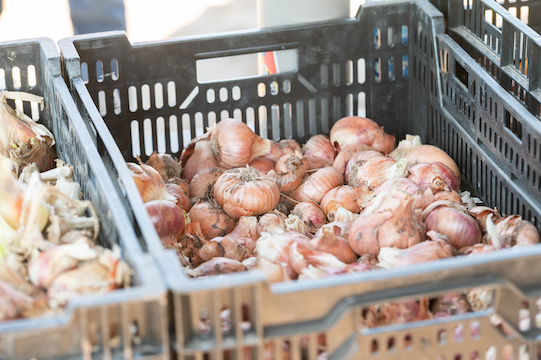For more details about an impact, contact information for NMSU ACES faculty and staff is available at the online directory.
For general questions regarding impacts in this database, please contact Claire Montoya at ccortner@nmsu.edu.

Reducing the Detrimental Impact of Fusarium Basal Rot Disease on Onion Production
Onion stakeholders in the U.S. have identified Fusarium basal rot (FBR) as a serious disease threat to onion yield and economic sustainability. The onion industry in the US is valued at farm gate annually at $900-1,000 million. Currently, the disease reduces onion yields at harvest and during storage. Chemical and cultural control methods are ineffective as a long-term solution to controlling this disease. Host plant resistance holds the potential to control this disease and eliminate its detrimental effects on onion production. Currently, onion cultivars are limited in their resistance to this disease. An onion germplasm is being developed and evaluated that could be less impacted by Fusarium basal rot. When inoculated with the disease-causing pathogen, our breeding lines exhibited a lower FBR incidence and severity than a commercial FBR-resistant cultivar. NMSU breeding efforts have shown a reduction in FBR disease severity and incidence with each cycle of selection. In addition, the breeding efforts for resistance have resulted in breeding lines that exhibited a higher level of resistance and less disease severity than most FBR-resistant cultivars currently available. Researchers have identified in onion a group of host plant compounds that appear to be involved in conferring resistance to this disease. Selection for these compounds will aid in the development of FBR-resistant onion cultivars. While the financial impact of FBR on onion bulb yield has not been determined, a conservative estimate of the damage caused by this disease would be a 10% reduction in yield. With the current annual farm gate value of U.S. onion production, this disease could be causing $90-100 million in damages annually. FBR-disease resistant onion cultivars could eliminate entirely the economic damage caused by disease.